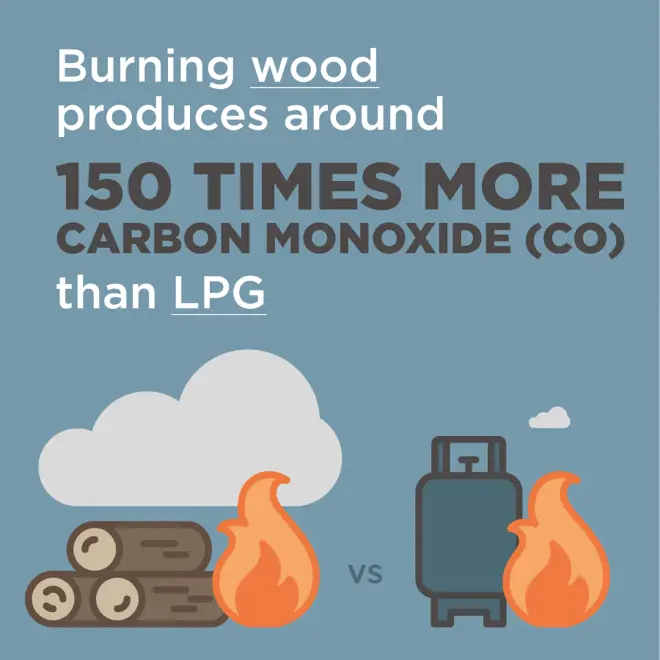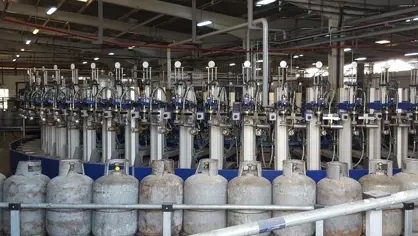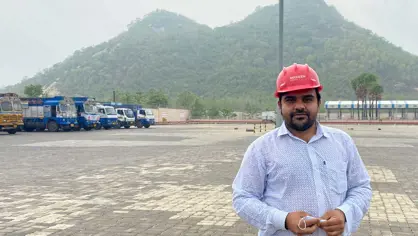Knowledge Centre
In the Western part of the world, it is common to see LPG (Liquefied Petroleum Gas) as a fuel of the past – only relevant as a tool for your summer barbeque. But this is far from the case in sub-Saharan Africa, where governments as well as organisations are pushing heavily for a shift to LPG as a means to improve public health, safety, and equality. In 2023, this could be seen in the number of projects for MAKEEN Energy in Africa. We asked Dimitri and Nicolas, two of our sales managers responsible for Africa, for their opinion LPG’s role in sub-Saharan Africa.

LPG is an essential part of daily life for millions of people who use it for cooking their meals, heating their homes, and generating power. Many parts of sub-Saharan Africa lack a sufficient power grid to bring electricity to all households – nor is there a gas grid to distribute natural gas for cooking and heating. And this is why so many Africans rely on LPG as their primary source of energy.
We have seen a lot of initiatives from governments to build a healthy LPG sector, such as subsidies, infrastructure investments, and incentives for private companies.
Fuel for development and health
But the challenge remains that a large portion of sub-Saharan populations, especially in rural areas, still rely on inefficient and polluting fuel sources like firewood and kerosene, which pose significant health hazards when used for cooking or heating indoors. Globally, around 4 million people die each year from illnesses associated with cooking over an open fire indoors, and a significant portion of those are in Africa. LPG, on the other hand, burns cleanly and effectively, which is why governments have made concerted efforts to encourage a switch to LPG.
Nicolas: “We have seen a lot of initiatives from governments to build a healthy LPG sector, such as subsidies, infrastructure investments, and incentives for private companies. This is also why we have seen really big growth in recent years. Especially in the coastal countries like Ghana, Côte d’Ivoire, and Tanzania, we see that the LPG consumption is increasing exponentially, even in the rural areas.”
Dimitri: “Yes, and there has been some much-needed regulation to these markets. Previously, it was common for the consumers to hold on to the same LPG cylinder for decades and just have it filled at the local gas station, with no leak testing, pressure testing or other safety control. And that led to a lot of accidents. Unfortunately also more than a few deaths. But with a mix of public awareness campaigns, legislation, and investments in modern technology, there has been a lot of progress towards a well-regulated system where cylinders are exchanged, checked, and maintained to ensure the safety of the consumers and build the public’s trust towards the product.”
So far, we have delivered four filling plants in Ghana, and we signed the contract for a fifth in January 2024. All of them are modern, with high safety standards and reconditioning lines that keep the cylinders safe to use.
Research underlines the importance of LPG
The positive prospects of promoting LPG are not exclusive to Africa. A 2023 study by Stockholm Environment Institute compared the emissions and climate impacts of staying on the business-as-usual practices for cooking fuel versus a large-scale transition to cooking with gas and/or grid electricity. This research, which focused on low- and middle- income countries, found that on a global scale, switching to LPG/electricity over a 20-year transition period would result in significant reductions in CO2 and CO2-equivalent emissions and contribute to a cooler planet.
Specifically, the study found that this switch would result in a about 3 billion fewer tons of cumulative emissions of CO2 equivalents, comparable to the annual emissions of roughly half a billion cars. And in terms of public health, this change would go a long way towards preventing the 3 million premature deaths from household air pollution that are caused each year from cooking with biomass.
The researchers saw that out of the whole world, sub-Saharan Africa was at the earliest stages of energy development, which is why fuels like LPG are particularly relevant for that region. Here, it is still expected that the amount of people relying on solid fuels will grow in the near future, unless significant actions are taken. There is still work to be done, and LPG will have a large role to play in securing sub-Saharan Africa’s future.





